YUGOSLAVIA: U.S. threatens Belgrade in spy row
A top-level political crisis has broken out between the United States and Yugoslavia over the trial of former Yugoslav leader Slobodan Milosevic at the United Nations tribunal in The Hague.


(20/3/2002) BELGRADE (March 20) - A top-level political crisis has broken out between the United States and Yugoslavia over the trial of former Yugoslav leader Slobodan Milosevic at the United Nations tribunal in The Hague. This week, Colin Powell, the U.S. Secretary of State, threatened to cut off critical aid to the country by the end of this month if Belgrade authorities do not agree to hand over classified military documents and other high-level government information urgently needed by Hague prosecutors to win a conviction against Mr. Milosevic on several counts of war crimes and genocide. Washington also wants Belgrade to help capture other indicted war criminals, including former Bosnian Serb leader Radovan Karadzic and his military commander Ratko Mladic. The crisis between the two countries was brought to the surface last week following the curious arrest in Belgrade of a U.S. diplomat, who was beaten and interrogated by Yugoslav army forces and held incommunicado for 17 hours before being released. Although little has been made of the U.S. diplomat's arrest and detention, it appears to be part of a complex and shadowy story, involving briefcases stuffed with classified documents, and secret meetings between U.S. and Serb officials in smoky Belgrade bars, that demonstrates deep U.S. concern over Mr. Milosevic's trial. The arrest has also heightened a political crisis in Yugoslavia that may irreparably damage the fragile political alliance that governs the country. Last Thursday, the Yugoslav army's elite "Cobras" unit raided a motel restaurant on the outskirts of Belgrade and arrested John David Neighbor, a U.S. diplomat stationed in Belgrade who has close links to the U.S. secret service. Arrested along with Mr. Neighbor was Momcilo Perisic, the Serbian deputy prime minister who was forced to resign over the incident yesterday. Mr. Perisic is being dubbed the Serb government's "spy minister" by the Belgrade press. He was formerly the army chief of staff for most of Mr. Milosevic's rule, but broke with the Yugoslav leader in 1998 after criticizing Mr. Milosevic's aggressive tactics in Kosovo. Mr. Perisic, who is reportedly a key source for Hague prosecutors in their trial against Mr. Milosevic, had met with Mr. Neighbor on several occasions in the last few months. The two had reportedly been closely followed by military security. Last Thursday evening, Mr. Neighbor met Mr. Perisic in the bar of the Motel Saric, where Mr. Perisic allegedly handed over secret military documents that could help convict Mr. Milosevic on war crimes and genocide at The Hague tribunal. According to Yugoslav media reports, the documents in question related to Serb troop activities in Kosovo in 1999 and to events in other parts of the former Yugoslavia between 1996 and 1998. Analysts say the documents could be used as the smoking gun desperately needed by Hague prosecutors to show that Mr. Milosevic directly ordered the murder of hundreds of civilians in Kosovo and Bosnia. The arrests came days before The Hague tribunal's chief prosecutor, Carla del Ponte, travelled to Washington to seek U.S. assistance in pressuring the Yugoslav government to co-operate with the tribunal by handing over classified military documents to be used in Mr. Milosevic's trial. Federal authorities in Yugoslavia, including Vojislav Kostunica, the Yugoslav President, have said they will not co-operate with The Hague tribunal, which they do not recognize as a legitimate court. However, Serb government officials, who favour stronger ties with the West, have been keen to help the tribunal gather evidence against Mr. Milosevic. "We noted a lack of progress on the part of the authorities in Belgrade with respect to the work of the tribunal," Mr. Powell said after meeting with Ms. del Ponte on Monday. Under U.S. law, Mr. Powell has until the end of March to certify whether Belgrade is fully co-operating with the tribunal. If it does not co-operate, the country stands to lose more than US$40-million in U.S. aid, which it desperately needs, and could face Washington's opposition to loans from the International Monetary Fund and the World Bank. Both Mr. Neighbor and Mr. Perisic have denied that they exchanged any classified information. Yesterday, Mr. Perisic, who was released on Saturday, resigned, denouncing his arrest as "a dictatorial attempt" to discredit him. The resignation was demanded earlier this week by Zoran Djindjic, the Serbian Prime Minister, who called the arrests "a first-rate spy scandal with international consequences," and an attempt by federal Yugoslav forces and the army to discredit the Serb government. Mr. Djindjic, who was highly critical of the arrests, forced his deputy to resign in order to clear the air and mount a proper investigation of events. In his letter of resignation, Mr. Perisic said the army had planted classified documents that were found in a briefcase belonging to Mr. Neighbor. Mr. Perisic also noted that "the attempt to discredit me represents a showdown staged by political opponents that was carried out in the style of the most sinister dictatorial regimes." The showdown refers to the the long-simmering feud between Mr. Djindjic and Mr. Kostunica, who have been bitter rivals since taking power two years ago. Mr. Kostunica, a moderate nationalist, has condemned Mr. Milosevic's extradition to the UN body last June. Mr. Djindjic, who is responsible for handing over the former Yugoslav leader to the tribunal, has a progressive, pro-Western attitude and favours cooperation with the tribunal. Earlier this week, Mr. Kostunica demanded that Mr. Djindjic resign. Although he says he was not informed of the army's plans to arrest Mr. Neighbor and Mr. Perisic, Mr. Kostunica defended its actions as being within legal limits. For his part, Mr. Djindjic has demanded the resignation of the military authorities involved in the arrests. He was backed up by the Vladan Batic, the Justice Minister, who said the documents were planted by military agents. Yugoslav army officials, many of whom remain loyal to Mr. Milosevic, have long distrusted Mr. Djindjic's government, and condemned his actions in delivering Mr. Milosevic to authorities in The Hague. They say they recently caught one of their own lieutenants handing over confidential documents to Mr. Perisic, who despite his good relations with The Hague tribunal has been indicted for war crimes by the government of Croatia for his part in ordering the Yugoslav army shelling of the Adriatic city of Zadar. The Serb government has formally apologized to the United States for the army's actions against Mr. Neighbor, who was reportedly held with a garbage bag over his head during part of his detention.
//Shqiptarja.com
 Sondazhi i ditës:
Sondazhi i ditës:
'Rasti Qefalia', a fshihen gjobat pas akuzave të Këlliçit, Nokës, opozitës?
-
Po
69.6%
-
Jo
20%
-
Ndoshta
10.4%
Vota total: 405
Votat totale janë unike

Lajme të tjera
-
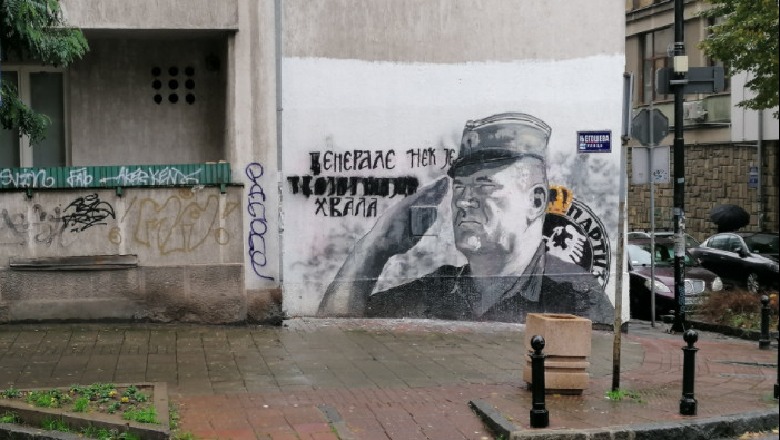
KE i bën thirrje Serbisë: Hiqni muralin kushtuar Ratko Mladiçit
20 Nëntor 2021, 08:24
-
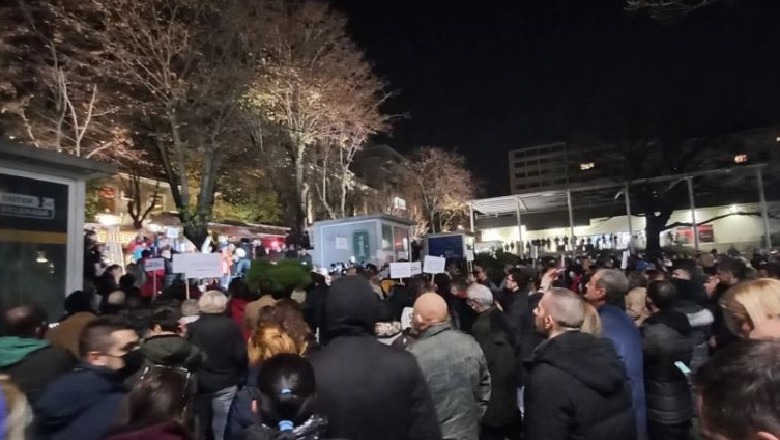
Murali i Mlladiç në mes të Beogradit, nis protesta për heqjen e tij! Qytetarët: Koha që Serbia mos të mohojë gjenocidit në Srebrenicë
13 Nëntor 2021, 21:18
-
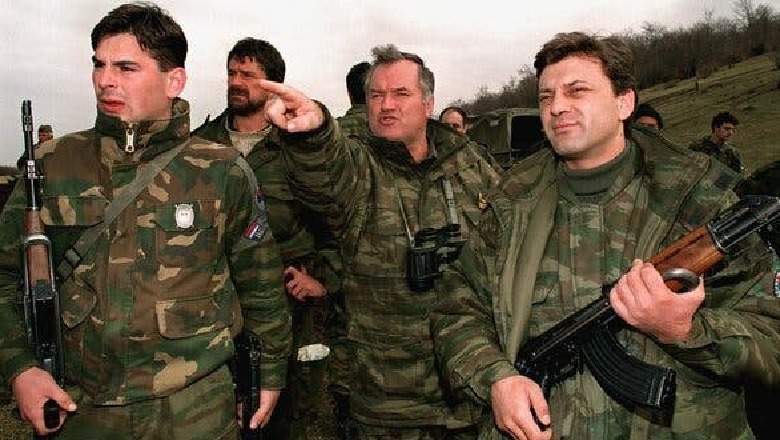
Burg përjetë për' Kasapin e Bosnjës' familjarët e viktimave: Si nënat e Srebrenicës edhe ai do të jetojë pa familjen! Media: Mbyllje e kapitullit të përgjakshëm të historisë
9 Qershor 2021, 10:38
-
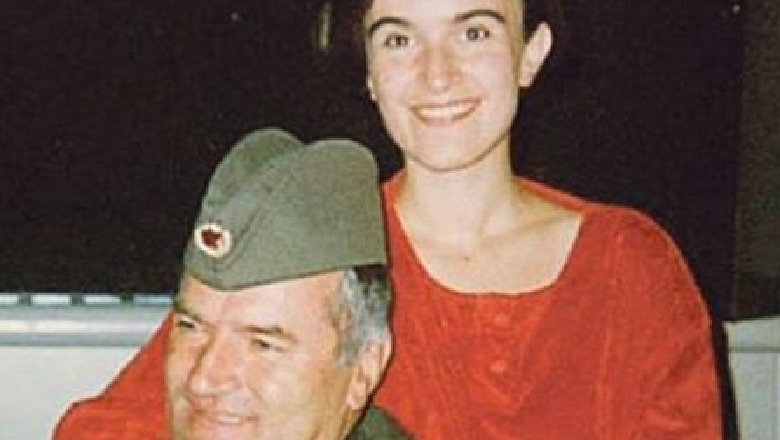
E vetëvrara e Ratko Mladiçit
9 Qershor 2021, 07:15
-
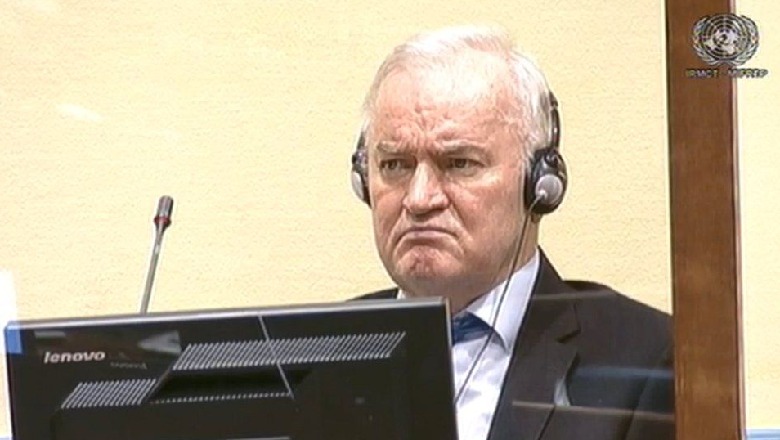
Ekzekutori i të paktën 8000 të pafajshmëve, dënohet përfundimisht me burg përjetë për gjenocid 'Kasapi i Bosnjës', Ratko Mlladiç
8 Qershor 2021, 16:36
-
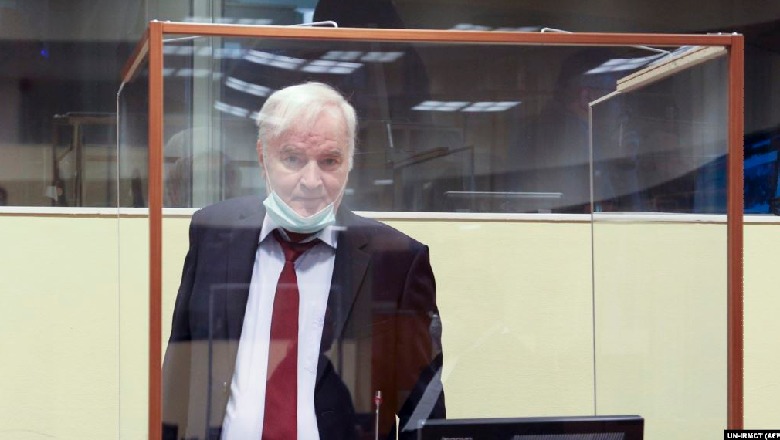
Gjyqi në Hagë, ish-gjenerali serb Mlladiq thotë se ka punuar 'me ndershmëri' në paqe dhe në luftë
26 Gusht 2020, 22:33
-
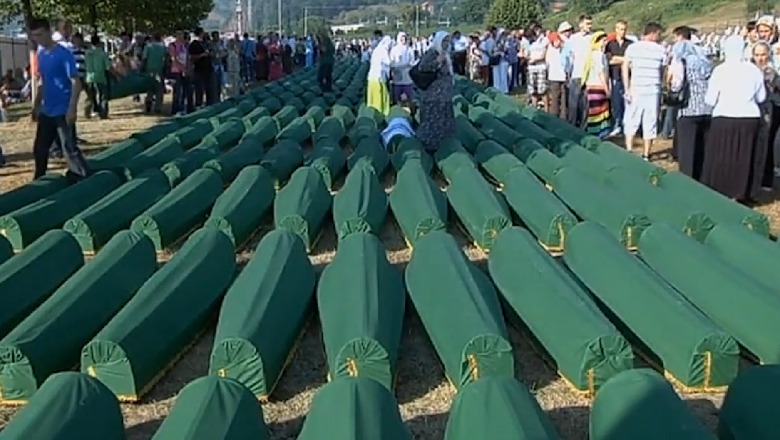
Plagët e hapura të Srebrenicës dhe gjenocidi i 25 viteve më parë
9 Korrik 2020, 11:20
-
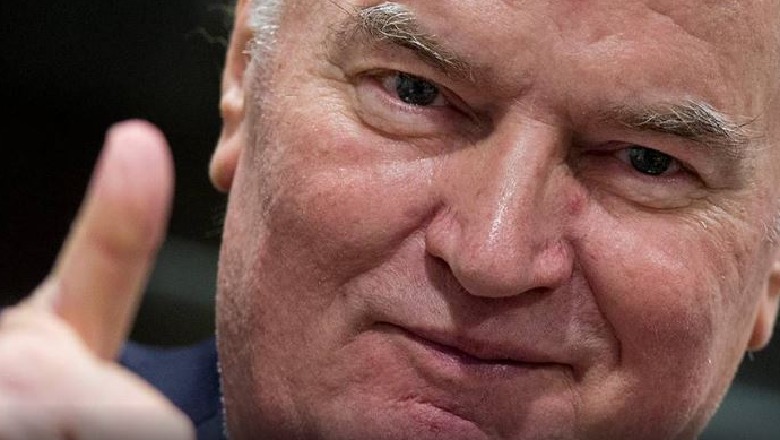
Gjykata e Hagës: Informacioni mbi vdekjen e Ratko Mladic është i pasaktë dhe ne e mohojmë atë
11 Shkurt 2020, 15:07






